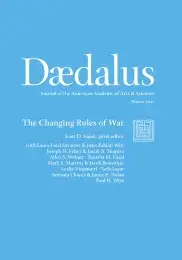Rebellion, War Aims & the Laws of War
Most wars today are civil wars, but we have little understanding of the conditions under which rebel groups might comply with the laws of war. I ask three questions in this essay: What do the laws of war require of rebels, or armed nonstate actors (ANSAS)? To what extent are rebels aware of the laws of war? Under what conditions do rebel groups comply with international humanitarian law? I argue that the war aims of rebel groups are key to understanding their relationship with the laws of war. In particular, secessionist rebel groups – those that seek a new, independent state – are especially likely to comply with the laws of war as a means to signal their capacity and willingness to be good citizens of the international community to which they seek admission.
The body of codified laws of war was written by states, principally to govern their conduct during wars with each other. But most wars today occur within, rather than between, states. The shift from interstate war to civil war raises a host of questions about how and whether the existing framework of international humanitarian law (IHL)–also referred to here as the laws of war–constrains states fighting civil wars and, particularly, the rebel groups they fight. In this essay, I focus on the laws of war from the perspective of rebel groups, asking: What do the laws of war require of rebels, or armed nonstate actors (ANSAS)? To what extent are rebels aware of the laws of war? Under what conditions do rebel groups comply with international humanitarian law?
The answers to these questions share a common theme: the political aims of rebel groups condition their view of the laws of war. Groups such as the Kurds, who seek to join the international community of states, strategically use their compliance with the laws of war to demonstrate their capacity and willingness to be good citizens of that community. . . .
To read the full essay, access the PDF.
